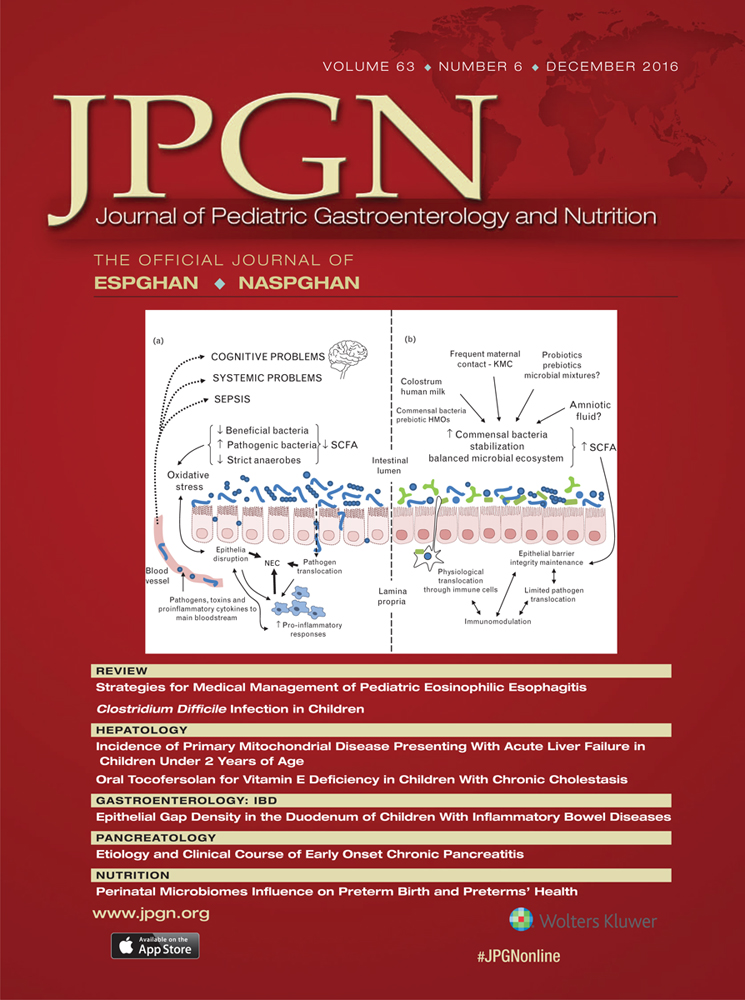Coagulation Gene Expression Profiling in Infants With Necrotizing Enterocolitis
Supplemental digital content is available for this article. Direct URL citations appear in the printed text, and links to the digital files are provided in the HTML text of this article on the journal's Web site (www.jpgn.org).
The study was funded by St George's Hospital Charitable Foundation (ref. 12.10.07).
The authors report no conflicts of interest.
ABSTRACT
Objectives:
Coagulopathy and mesenteric thrombosis are common in premature neonates with necrotizing enterocolitis (NEC). This pilot study aimed to investigate the hypothesis that there are changes in the gene expression related to the coagulation and anticoagulation systems in NEC.
Methods:
Consecutive neonates (n = 11) with NEC (Bell stages 2–3) were recruited. Two comparison groups, matched for birth weight and corrected gestational age, were selected based on the absence of inflammation and coagulopathy (healthy control, n = 10), or the presence of a confirmed blood infection (sepsis control, n = 12). A pathway-specific quantitative polymerase chain reaction array was used to determine the expression of 94 genes involved in human blood coagulation and anticoagulation cascade.
Results:
Twelve genes of the coagulation and anticoagulation systems were significantly altered in the patients with NEC compared with healthy controls. In particular, neutrophil elastase, CD63, PROS1, HGF, and F12 were significantly upregulated (mean fold changes [FCs] +2.74, P < 0.05) with an overall procoagulant effect; MFGE8, factor II (thrombin) receptor-like 1 (F2RL1), FGL2, PLAT, PROCR, SERPIND1, and HNF4A were significantly downregulated (mean FCs −2.45, P < 0.05) with a reduction in fibrinolysis and endothelial regeneration. In the comparison between NEC and sepsis, we did observe a significant difference in expression of F2RL1 (FC −2.50, P = 0.01).
Conclusions:
We have identified potential biomarkers associated with coagulopathy and disease progression in NEC. In particular, the overall procoagulant status, at the transcriptional level, should be further investigated to unveil molecular mechanisms leading to intestinal necrosis, multiorgan failure, and death.




